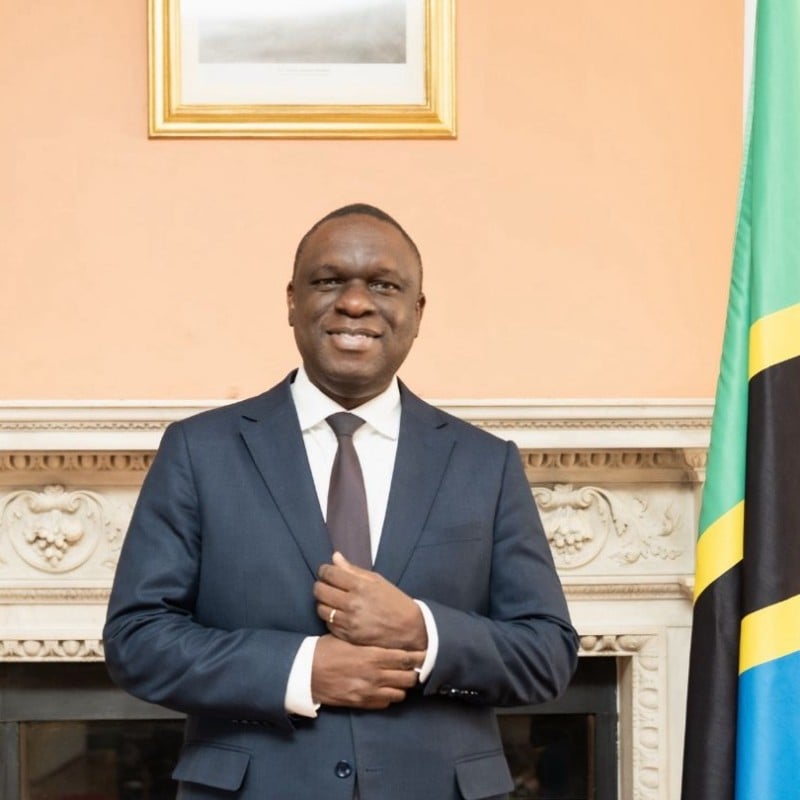The United Kingdom’s new trade strategy, published this month, set out a vision for securing the country’s place in a competitive global economy. It spoke of “seizing new opportunities,” “expanding partnerships,” and “diversifying trade,” yet only mentioned Africa in passing. As a Tanzanian who deeply values my country’s historic relationship with the UK, this felt like a missed opportunity.
Because the reality is this: Africa is home to 13 of the 20 fastest-growing economies in the world. My own country, Tanzania, is among them. Yet UK trade with Africa has declined from 16% in 1990 to just 2% today. The UK is no longer among Africa’s top three trading partners, nor is it a top three trading partner of any African country. China and India are now Africa’s largest trading partners. This represents a marked shift, and UK-African interests have suffered.
But it’s not only the UK government that is missing out; so too are British investors. UK foreign direct investment (FDI) in Tanzania has recently turned negative, indicating a net withdrawal of capital. Tanzania is not alone, with every African country facing a decline in UK FDI over the last decade. And where the UK does invest, it is overly concentrated. South Africa alone receives 85% of all UK FDI into the continent.
Yet Tanzania’s economy is expanding rapidly. We are on track to grow faster in the first six months of 2025 than the G7 economies will by the end of 2026. And the Tanzanian shilling is among the best performing currencies in the world this year.
If British investors want to secure long-term returns, diversify supply chains and have access to high quality yet low cost “Made in Africa” goods, then Tanzania and Africa as a whole should be firmly back on the radar.
There are encouraging signs of a deepening commitment. Trade deals were signed post-Brexit, and this year’s UK-Tanzania Mutual Prosperity agreement went further. Manufacturing Africa, a group supported by UKAid in collaboration with McKinsey, is promoting UK manufacturing investment in six African countries, one of which is Tanzania, with a particular focus on mining. This is complemented by the UK-Tanzania Green Growth Facility, a four-year initiative unlocking the export of Tanzania’s high-value crops to global markets, strengthening Tanzania’s investment ecosystem and leveraging climate finance.
Tanzanian opportunities for UK investors
As a proud member of the Commonwealth, our people, culture and economy have long been intertwined with Britain’s. The opportunity now is to bring that relationship into the 21st century through trade, technology and mutual investment. Under President Samia’s leadership, Tanzania is pursuing one of the most ambitious and well-structured industrialisation strategies in Africa. The government has invested heavily in enabling infrastructure – energy, rail, roads, ports and digital connectivity – while streamlining regulation to attract private investment.
Projects like the Julius Nyerere Hydropower Plant, the new Kigongo-Busisi Bridge across Lake Victoria and the nationwide rollout of the Standard Gauge Railway will create a highly connected nation with abundant clean energy, ready to export regionally. Special economic zones (SEZs), such as the Sino-Tan Industrial Park in Kibaha, are already attracting manufacturers, with 71 memoranda of understanding (MoUs) having already been signed. It is expected to attract $3bn of capital. Tanzania also has a youthful population in vocational training, with dedicated youth employment initiatives preparing a skilled workforce.
We have received international recognition of our efforts. According to the 2023 World Investment Report by UN Trade and Development, Tanzania ranks among the top 10 most attractive investment destinations in Africa.
There is also no need to rely on faith alone. The evidence of private sector innovation and success stories on the continent are already well established.
Ubongo, a Dar es Salaam-based edutainment company, reaches over 32m households across Africa with high-quality educational content. It has secured backing from major global institutions such as the Gates Foundation and USAID, proving that Tanzanian intellectual property can scale continent-wide.
The same is true across sectors. BimaAFYA provides affordable mobile-based health insurance to Tanzania’s informal sector. Simusolar brings solar-powered agri-tech tools to rural farmers and fishers. And on the capital side, Sahara Ventures is nurturing a pipeline of high-growth startups through Sahara Sparks, the largest tech entrepreneurship event in East Africa.
Even established sectors are evolving. Tanzanian Breweries, majority-owned by AB InBev, remains one of the most successful listed companies on the Dar es Salaam Stock Exchange and a powerful example of how foreign capital can thrive in Tanzania’s consumer goods market.
Building blocks in place
Together, these companies and industries tell a story: there is money to be made in Tanzania and in Africa, and British capital has every reason to participate. China and India certainly are doing so.
This is not just a Tanzanian view. Across the continent, there is a growing call for a more strategic and mutually beneficial relationship with the UK. African countries are working together to propose a joint UK-Africa strategy, aligned with the African Union’s Agenda 2063. This would include a biannual UK-Africa summit, deeper policy collaboration on shared priorities, and targeted programme support for inclusive growth. It’s an open invitation to build a more balanced partnership, including trade.
For those seeking opportunity in a world that increasingly values resilience, diversification,= and inclusive growth, Tanzania is ready. The building blocks are in place to make this happen, and significant progress has been made. We must build on these for both of our proud nations to prosper.
Want to continue reading? Subscribe today.
You've read all your free articles for this month! Subscribe now to enjoy full access to our content.
Digital Monthly
£8.00 / month
Receive full unlimited access to our articles, opinions, podcasts and more.
Digital Yearly
£70.00 / year
Our best value offer - save £26 and gain access to all of our digital content for an entire year!

 Sign in with Google
Sign in with Google 



